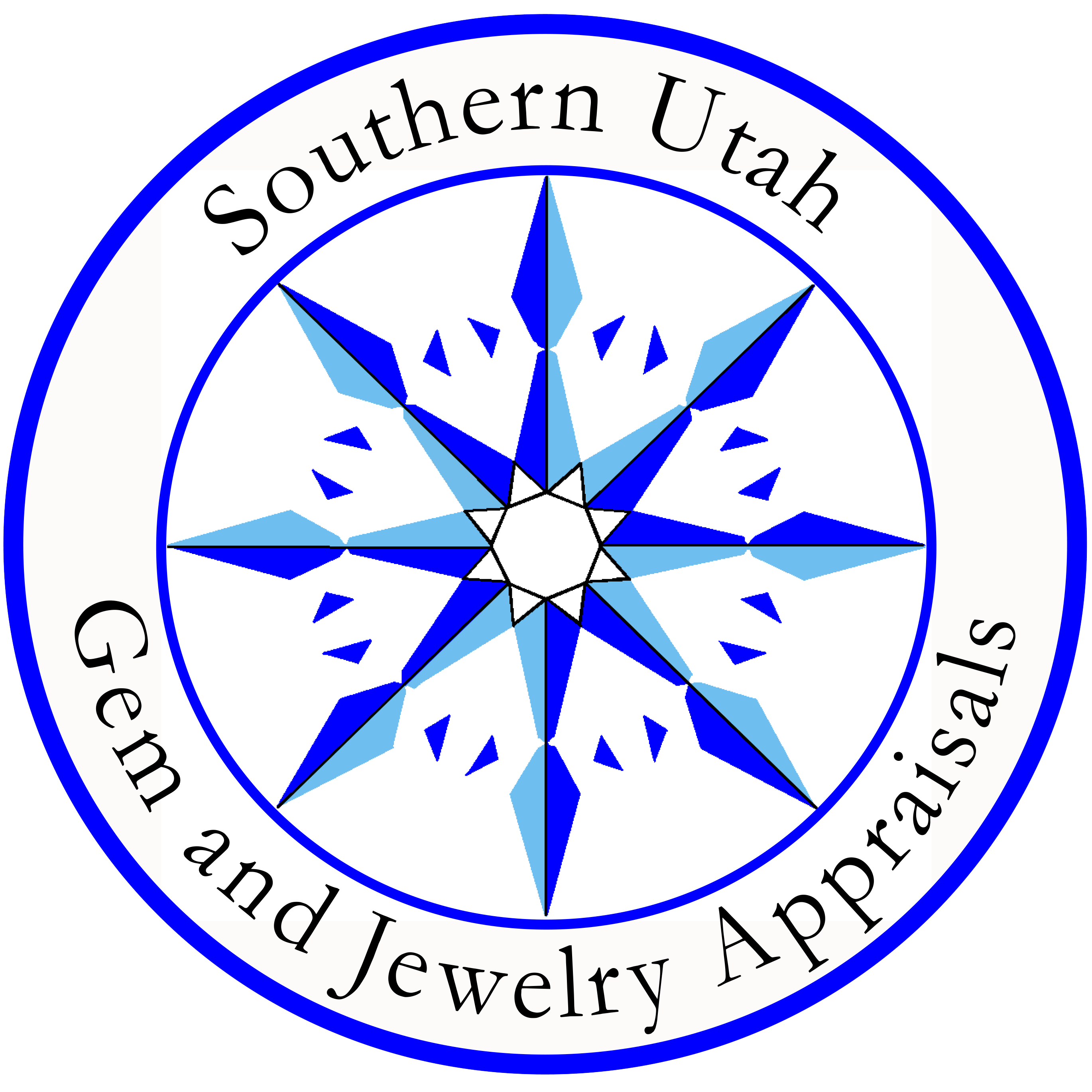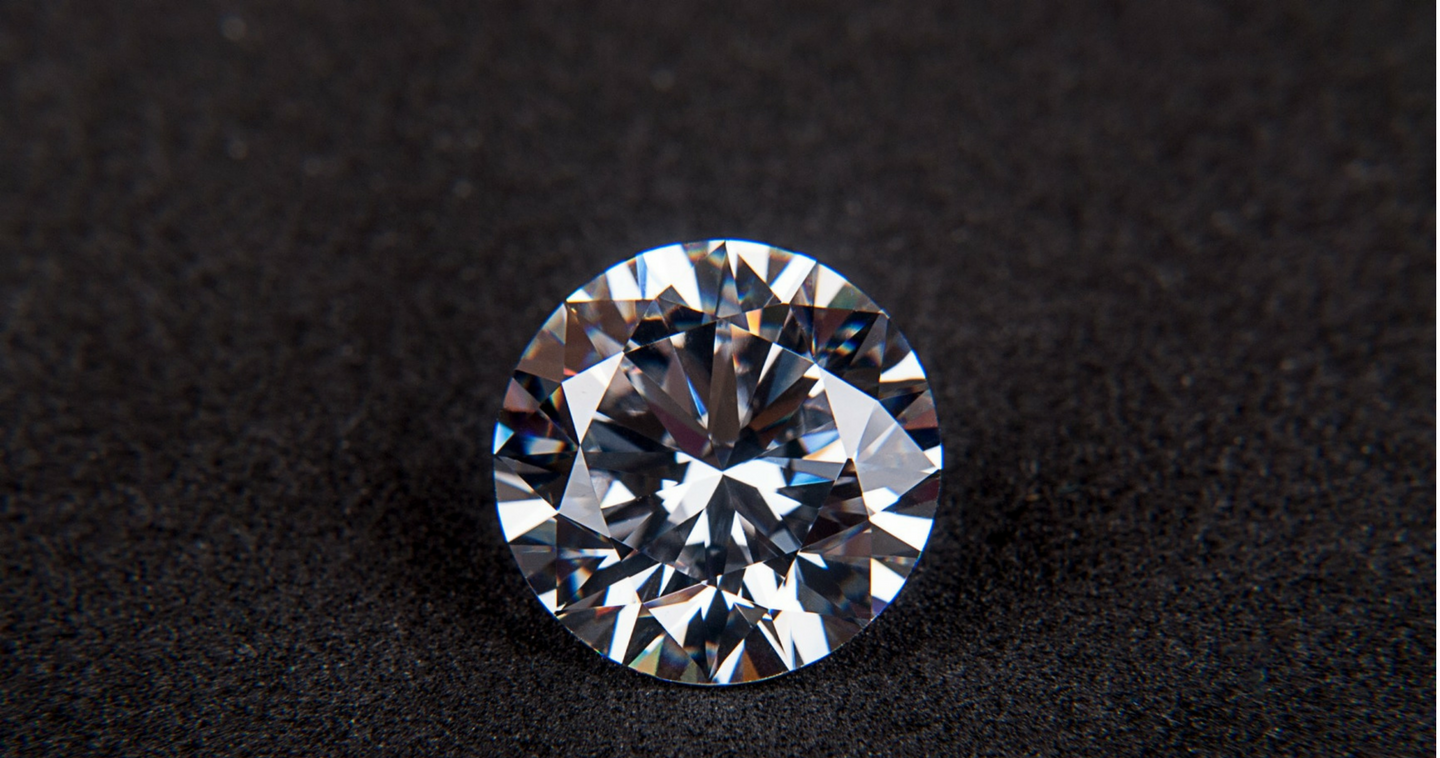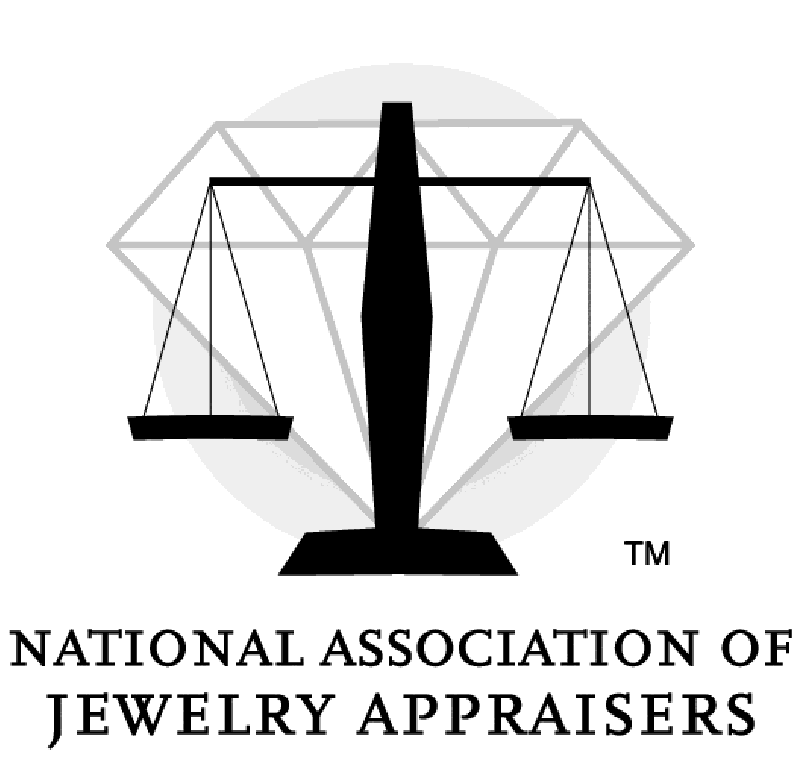Appraisals you can trust!
Let a Graduate Gemologist and Independent Appraiser, with over 37 years of experience, help you to achieve the peace of mind that you deserve.
Unbiased and Accurate Appraisals
We are an independent jewelry appraisal and gemological services company with over 37 years of experience in the fine jewelry industry and appraisal field. We approach each appraisal with accuracy, thoroughness, ethical representation, and honesty.
Excellent and Thorough Documentation
We accurately document and determine the current market value of diamonds, gemstones, antiques and all types of jewelry-no matter what their age. Rest assured that you are getting an unbiased and fair evaluation.
Up-To-Date Appraisal Values
Determining the current market value of your gems & jewelry is the only way you can be sure your insurance is adequate to cover them against loss, theft or damage. Let us help you discover the true value of your jewelry & get the piece of mind you deserve.
Meet our owner, Patrick.
Graduate Gemologist
Over the years, Patrick has had the privilege of becoming well acquainted with many of the most highly qualified jewelers and appraisers in the country and has participated in numerous ongoing educational forums to stay abreast of the constant challenges facing jewelers, gemologists, and appraisers.
What is an appraisal & do I need one?
The answers to those questions are: “There are several different kinds of appraisals, depending upon what your
situation is and what your needs/goals are.” And: “There’s a good chance you do…and don’t even know it!”

Most people have no idea that there are many different types of appraisals recognized in courts of law. The assessment of value can vary drastically from one type of appraisal to another depending upon which “market” is used and what the legal scenario is.
Book an Appointment today for free.
BOOK APPOINTMENTFrequently Asked Questions
Most people have no idea that there are many different types of appraisals recognized in courts of law. The assessment of value can vary drastically from one type of appraisal to another depending upon which “market” is used and what the legal scenario is. The following list illustrates different types of appraisals:
Barter Appraisal
Casualty Loss Appraisal
Certificate of Deposit
Certified Appraisal
Collateral Appraisal
Comparison Appraisal
Conservatorship/Guardianship
Consignment Appraisal
Customs Evaluation
Damage Report
Dissolution of Marriage (Divorce) Appraisal
Distribution of Property
Donation & Gift Appraisal
Estate Appraisal
Estimate to Replace: Current Hypothetical Appraisal
Estimate to Replace: Retrospective Hypothetical Appraisal
Estimate to Replace: Prospective Hypothetical Appraisal
Insurance Replacement Appraisal
Inventory Confirmation Report
Investment Appraisal
Qualitative Report
Recertification Report
Statement of Replacement Cost
Verification
Wholesale Appraisal
As you can plainly see, this is why you need to consult with a professional appraiser, not simply someone with gemological training, in order to make sure that you get the proper documentation for your individual needs.
Secondly: If you are establishing a trust or are involved in estate planning, knowing the values of items could drastically affect your thinking and how your trust and/or will might be written. This, in turn, could radically affect your heirs, after your passing, and the way your assets are distributed. In short, proper appraisal documents and documentation could play extremely important roles for a smooth transition of your personal property to your heirs and the elimination of much stress and strain during an already very difficult time for your family. Or, as is very common in the case of poor or outdated documentation (the worst-case scenario is no documentation at all!), your heirs and loved ones may well end up in an unbelievably nasty situation that can have drastic, long-term, negative side effects.
Actually, there are many types of appraisals, depending upon the legal situation involved, and they vary in their functions accordingly. Terms such as “Barter Appraisal”, “Casualty Loss Appraisal”, “Collateral Appraisal”, “Consignment Appraisal”, “Dissolution of Marriage Appraisal (Divorce)”, “Statement of Replacement Cost”, just to name a few, are examples of different types of “appraisals”. Believe it or not, there are approximately 25-30 different kinds of appraisals all of which are affected by various different local, State, and Federal laws and statutes. To define them all would require volumes!!!
Don’t worry about those items which are either not that important to you or which have very little monetary value. Why pay insurance premiums on an item that you are not going to replace or which can be easily purchased for very little cost? The obvious exception to this concept is that if you happen to have specific items which would have particular interest to your heirs and you simply want them accurately documented for future distribution to a particular person or persons. For example: A strand of simulated pearls that belonged to your grandmother and which you specifically want to go to a particular granddaughter. A comparable strand of simulated pearls might be readily available for $20.00 from any one of several sources. But they wouldn’t be GREAT GRANDMA’S PEARLS! Including that type of item, with that type of history and potential future, on a formal document would make perfect sense. You may choose not to insure it, per se, but you may simply want the item to be properly identified and described so as to eliminate all doubt about its identity, its origins, and it’s intended future recipient.
“Value” is a much more complex issue. It is relative. It is subjective. It may vary drastically depending upon the legal situation or certain facts and one’s situation relative to those conditions.
For example: If you want to insure an item, you want to make sure that you have contracted with your insurance company for a sufficient amount of coverage to replace the item and protect you from a significant expenditure of cash out of your own pocket. “Replacement Value” typically translates to: What an item would sell for in new condition on a given date. A diamond ring might cost you $5,000.00 to replace with an item of equal quality and manufacturing technique. You would want to make sure you had at least $5,000.00 worth of coverage for that item.
If the same item is being offered for sale as an “estate piece”, the value of the item would typically be much less as it is a previously-owned (used) item. A potential buyer for an estate piece would need to consider restoration or potential repair costs, sizing and alteration costs, costs for the verification of the weights and grades of the stones involved and so forth. As such, to the potential buyer, it might only represent a value of let’s say $3,000.00, more or less, depending upon how much they really want the item and other factors.
But, what if we are talking about “scrap value”, meaning that the item is going to be melted down for raw gold, whatever diamonds or colored stones are in the item are going to be pulled out and potentially used in some other item someday. This scenario is commonly seen in divorce and “forced sale” situations where the owner is selling under duress and needs to “cash out”. The person considering the purchase of such an item, a pawn broker for instance, will typically offer much less than the “replacement value”. There are several reasons for this.
A) The pawn broker cannot re-sell the item as a “new ring”. It’s not…it’s used…with a “history”. By law, the pawn broker, or jeweler who sells estate jewelry, must state that the item is “previously owned”.
B) The pawn broker knows that the buyer of a ring of this nature is typically only going to expect to pay 30-50% of what the item might sell for in new condition. He needs to make a profit in order to stay in business, so he must offer something less than what he expects to sell the item for to allow for a profit margin.
C) If the ring is not particularly attractive, or is a style that appeals to a small market and may take a long time to sell, he is likely going to simply pull the diamonds and other stones out of the mounting and send the mounting to a refinery to be melted down and recycled. He may then use the gemstones in some other manner…put them into a new item, use them as replacement stones for the refurbishing of other items, or sell the stones loose.
D) There are also security issues that the buyers of “estate jewelry” must consider. Is the item stolen? (If it turns out to be “hot”, the item may end up being confiscated by law enforcement and the pawn broker or jeweler is simply out the money paid and may be facing serious legal problems for even having it in their possession.) Is there any type of lien against it? Is it damaged and requiring a lot of repair work?
When this takes place all designing costs, all metal fabrication costs, all stone setting labor costs, all finishing costs and profit margins for everyone involved in the production of the item in question are lost. They become irrelevant.
All of these factors (and many more I’ve not listed) represent money to the pawn broker or estate jeweler. It means they must estimate their own out-of-pocket costs and weigh the risks. As a result of all this, they may well offer a much lower amount to the person offering the item to them…perhaps only $500.00 to $750.00.
Think of it this way: Consider what happens to “value” after running a brand-new luxury automobile, which sold yesterday for $125,000.00, into a tree and then selling the remains for scrap metal, plastic, and a few salvageable components. It’s not “worth” $125,000.00 anymore.
On the other hand, what if the item in question turns out to be a rare antique or was produced by a famous designer or artist? In that case, a potential buyer might be very willing to pay considerably MORE than the perceived “replacement value” just to get their hands on the item!
Each of the many legal scenarios mentioned earlier can result in a different “value” …and that value is relative to how different parties view the items in question. THAT is why you need to arm yourself with knowledge and to do some homework on your personal property. The more you know, the better off you will be and the less likely you will find yourself in an unhappy situation.
When you are sick, you go to a doctor. When you need financial advice, you go to a CPA. When you have legal questions, you consult with an attorney.
Simply stated, you seek out a highly trained…and EXPERIENCED…professional who is best suited to assist you with your particular needs. Why would you do anything differently when it comes to documenting and assessing values to your personal property, which could be used for any number of reasons, and which will affect what you pay for insurance premiums or how you resolve estate settlement questions?
Some jewelers are highly trained and professional. Many are not. A few are gemologists. Most are not. Most are simply merchants who happen to sell jewelry of one type or another. Few are trained appraisers with the highly specialized education necessary to understand what is referred to as “value assessment theory” and the many legal statutes which apply to personal property such as fine art, guns, furniture, antique cars, jewelry, and so on and so forth.
Think of it this way: An individual may have an advanced degree in anatomy, physiology, biochemistry, or zoology. That does not qualify that individual as a physician or surgeon. A person may have a Ph.D. in chemistry…but that does not mean they are qualified to function as a pharmacist or pharmacologist.
A gemologist is trained in the identification and grading of gemstones, treatments, enhancements, synthetic or “lab-grown” gemstones, the history and sources of gemstones, the beliefs and legends attached to gemstones and many other things. They are NOT trained to assess value beyond very rudimentary levels. A qualified appraiser, on the other hand, must be a Graduate Gemologist (or its equivalent) first and, on top of that, must have a tremendous amount of additional training and practical, first-hand experience working in the industry in order to understand the many factors which affect “value”.
An “Independent Appraiser” has no affiliation with any retail store and does not buy or sell anything. They are completely neutral with no interest, financial or otherwise, in the items they are asked to appraise. This is vitally important as there are no “conflict of interest” concerns which might affect the stated value of appraised items.
By choosing an Independent Appraiser, with the proper qualifications, you can give yourself the best chance of having accurate values and proper descriptions of your merchandise…regardless of how you choose to use your documentation.
wholesale
[hohl-seyl] noun
1.
the sale of goods in quantity, as to retailers or jobbers, for resale (opposed to retail ).
retail
[ree-teyl
noun
1.
the sale of goods to ultimate consumers, usually in small quantities (opposed to wholesale ).
“Retail” does NOT mean a set price for something in a store. “Wholesale” does NOT mean that it is the net cost paid by the merchant.
“Retail” simply means that the transaction is to the “ultimate user or consumer” and that any applicable sales or use taxes are collected. It has nothing to do with mark-ups, profit margins, or “value”.
“Wholesale” simply means that the transaction is NOT the final sale for the merchandise in question and that another, future transaction, is pending and that sales taxes are not collected. It commonly, but not always, refers to purchases in bulk by a store or business that intends to re-sell the products but can also refer to single items purchased by a business on a special-order basis.
These terms are tossed around indiscriminately by many businesses who claim to sell “wholesale” to the public. Well, do they collect sales tax? If the answer is “yes”, then those are RETAIL transactions. End of story. If they don’t, and get the purchasers’ proper tax ID numbers and wholesale license info, and report that data to the appropriate State authorities, then they could be classified as “wholesale” transactions. How often does that really happen???
Commonly, a savvy business can buy products and then re-sell them to the public for less than what their competition pays for the same goods! Is the savvy business charging sales tax? Yes. Is the savvy business selling “wholesale”? No. They are simply selling retail…very competitively.
The reason it is important to understand these two terms is that they distort the public’s concept of “value”. A qualified appraiser understands the proper choice of “market” (the legal term used by court systems for value disputes or settlements) when appraising an item. The appraiser may ask many questions about the history of an item in order to properly ascertain how an item should be valued.
There is no way that a monetary value can be ethically assessed to the emotional importance or “sentiment” that might be attached to a piece of jewelry or any other item of personal property. In truth, a family heirloom cannot be replaced. Ever.
For example: An item that belonged to your Grand Father might well have a personal, emotional, spiritual meaning that far transcends monetary considerations. Yes, it might be a “valuable” item…but the emotional aspect might well far outweigh the financial aspects. For the sake of illustration, assume that Grandfather’s item was 2.50 ct. Old European Cut diamond in a simple 18K yellow gold ring, given to him by his wife before leaving for military service and which he wore all through WWI and WWII until the end of his life. It has now been worn by three generations of the same family and is now in your possession.
If that ring is lost, stolen, or destroyed, are 2.50 ct. Old European Cut diamonds readily available? Yes, they are. Are similar 18K ring mountings available or could one just like it easily be made? Sure. Would they be Grandpa’s ring with the same meaning to you? No way.
Commonly, items with little monetary value are included in estate settlements, documentation for trusts, and so forth. That’s because a decedent’s heirs commonly expect to receive specific items upon the settlement of the estate…regardless of monetary considerations…due to the specific history, memories, and personal connections that those jewelry items represent.
This is also why proper documentation is so important: to give proper and due justice to important, historically significant items which simply cannot be replaced. The better the documentation, the easier and less painful the replacement process will be.


